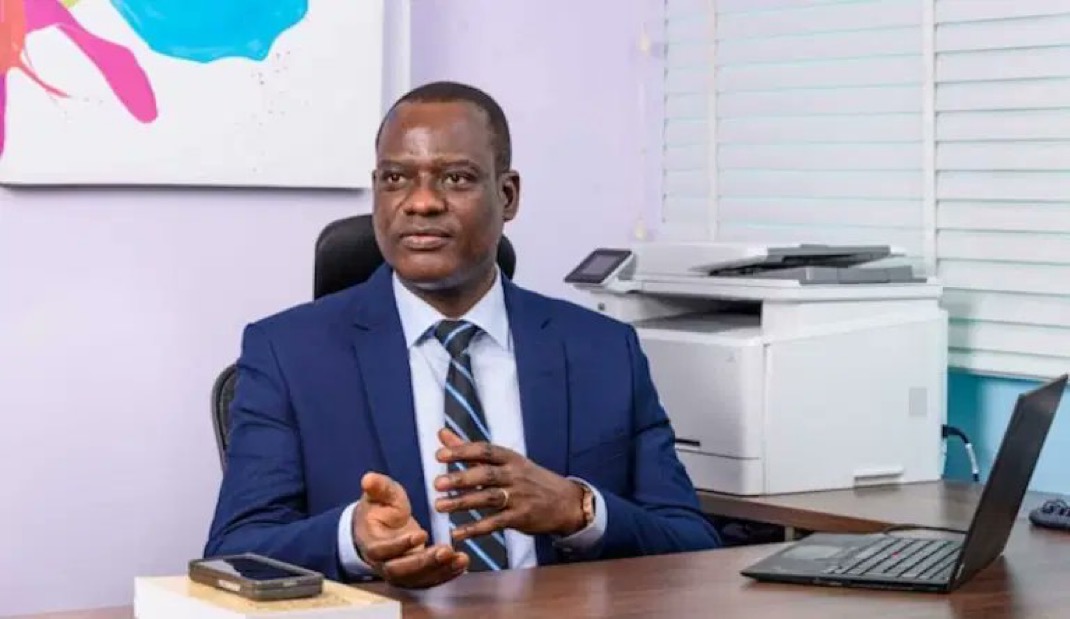
Heartbreaking Irony as Old Tweet of Late Arise News Presenter Sommie Maduagwu Resurfaces, Stirring Emotional Reactions Across Nigeria

Nigeria is reeling with shock and heartbreak as an old tweet posted by Arise News presenter Sommie Maduagwu has resurfaced following her tragic passing, sending waves of grief and disbelief across social media. Sommie, who was widely admired for her poise, brilliance, and fearless reporting, had posted a heartfelt plea on her verified X (formerly Twitter) account months ago that now reads like a haunting premonition. “I pray from the depth of my heart that Nigeria never happens to me or anyone I care about,” she wrote in the tweet that has since gone viral. What was once an ordinary expression of frustration about the country’s difficulties has now taken on a chilling new meaning in the wake of her untimely death.
The tweet, which was originally posted under the handle @Sommie_xo, has ignited a storm of emotional reactions, debates, and reflections across Nigeria. Screenshots of the post have flooded Instagram, X, and Facebook timelines with thousands of comments from Nigerians struggling to process the devastating irony of her words. For many, it represents a painful mirror of the everyday struggles of life in Nigeria—unpredictable security challenges, failing infrastructure, and systemic issues that claim lives too soon. But for others, it is more than just a viral post; it is a tragic reminder of the fragility of life in a country where dreams can so easily be cut short.
Sommie Maduagwu was a rising star in Nigerian journalism. Known for her sharp intellect, warm delivery, and unwavering professionalism on Arise News, she embodied the promise of a new generation of Nigerian broadcasters—young, bold, and unafraid to demand accountability. Colleagues at the network described her as a “light in the newsroom” and someone who “never stopped believing in the power of journalism to change lives.” Her death, which has left her family, friends, and coworkers devastated, has also prompted an outpouring of tributes from public figures, viewers, and former colleagues who recall her impact both on-screen and off.
Since the news of her passing broke, the resurfaced tweet has become a rallying point for conversations about the Nigerian experience and the many ways it wears people down. The phrase “Nigeria happened” has long been a slang expression of disillusionment or tragedy in the country, referring to situations where systemic failures, corruption, or societal dysfunction take a toll on ordinary citizens. In this context, Sommie’s prayer that “Nigeria never happens to me” was a deeply relatable sentiment for thousands of Nigerians who live daily with uncertainty, insecurity, and frustration. Now, in the cruel twist of fate, her words feel prophetic to many who see her passing as yet another example of how dangerous and unpredictable life can be in Nigeria.
Social media timelines are flooded with grief-stricken reactions. “This tweet is haunting me,” one user posted, alongside a crying emoji and a screenshot of the viral post. “She knew. She felt it. And now she’s gone. Nigeria, when will we change?” Another wrote, “Rest in peace Sommie. You didn’t deserve this. Your tweet is a painful reminder of what we all face every day.” Some have even called for the tweet to be immortalized as a symbol of the struggles of Nigerian youth—bright minds who work hard, hope hard, and pray hard, but still find themselves caught in the web of the country’s harsh realities.
Public figures and fellow journalists have joined the chorus of tributes. Several Arise News anchors and producers have shared personal memories of working with Sommie, describing her as “kind, professional, and full of life.” One of her senior colleagues wrote: “Sommie was more than a colleague; she was family. She had such a bright future ahead of her, and it breaks my heart that she’s gone. Her tweet should shake us all.” Politicians, activists, and celebrities have also weighed in, using her words as a call to action for systemic change in Nigeria. “This young woman’s death and her tweet must be a wake-up call,” one activist wrote. “No one should have to pray that their own country does not harm them.”
Even as tributes pour in, the circumstances surrounding Sommie’s passing remain a subject of widespread discussion. While details of her death are still emerging, the tragedy has underscored the fragility of life for young Nigerians who often feel they must navigate dangerous roads, inadequate health systems, and unsafe environments just to pursue their dreams. For some, Sommie’s death represents a personal loss—a beloved journalist whose reports they watched daily. For others, it is a symbolic one—a stark reminder that the systemic challenges of Nigeria do not discriminate, even against its most promising young professionals.
In the days since the tweet resurfaced, it has sparked a larger conversation about mental health, hope, and the emotional toll of living in a country beset by crises. Some commentators have suggested that the tweet should not simply be seen as ironic or prophetic, but as a cry for help shared by millions of Nigerians. “When we say ‘Nigeria happened,’ we’re talking about broken systems—healthcare, security, education—that harm people every day,” a mental health advocate wrote. “Sommie’s passing is devastating, but it should push us to talk about how to make this country safer for all of us.”
At vigils and online memorials, Sommie’s colleagues and admirers have shared clips of her on-air moments, where she can be seen confidently moderating debates, interviewing high-profile guests, and delivering news with grace. In these videos, she appears radiant and assured, embodying the very opposite of the despair her resurfaced tweet now evokes. “She was full of hope,” one viewer commented under a clip of her last appearance. “Even though her tweet was sad, she always gave us hope on screen. That’s how I’ll remember her.”
Her family has asked for privacy as they grieve, but in a brief statement, they expressed gratitude for the outpouring of support and prayers from across the country. “Sommie was loved deeply, and we are comforted by the kindness of Nigerians at this time,” the statement read. Friends close to her say she would have wanted the conversation sparked by her tweet to lead to change, not just sympathy. “She cared about Nigeria,” one friend said. “That tweet was not just about herself; it was about all of us. She wanted better for this country.”
As Nigerians continue to process the tragic loss of Sommie Maduagwu, her old tweet remains pinned in the collective consciousness—a short, heartfelt message that now carries the weight of a nation’s grief. It is a reminder of the vulnerability of even the brightest among us, the unpredictability of life, and the urgent need to make Nigeria a place where young people can thrive without fear. Whether it becomes a rallying cry for reform or simply a heartbreaking footnote to her legacy, one thing is clear: Sommie’s voice, in life and in death, has left an indelible mark on the country she both loved and feared.

